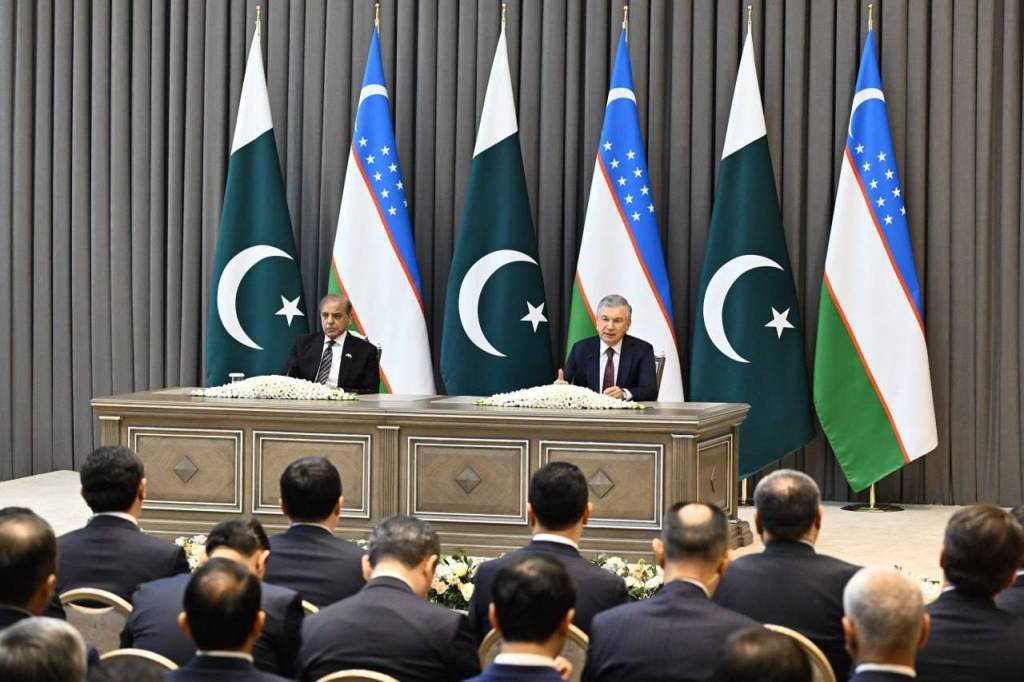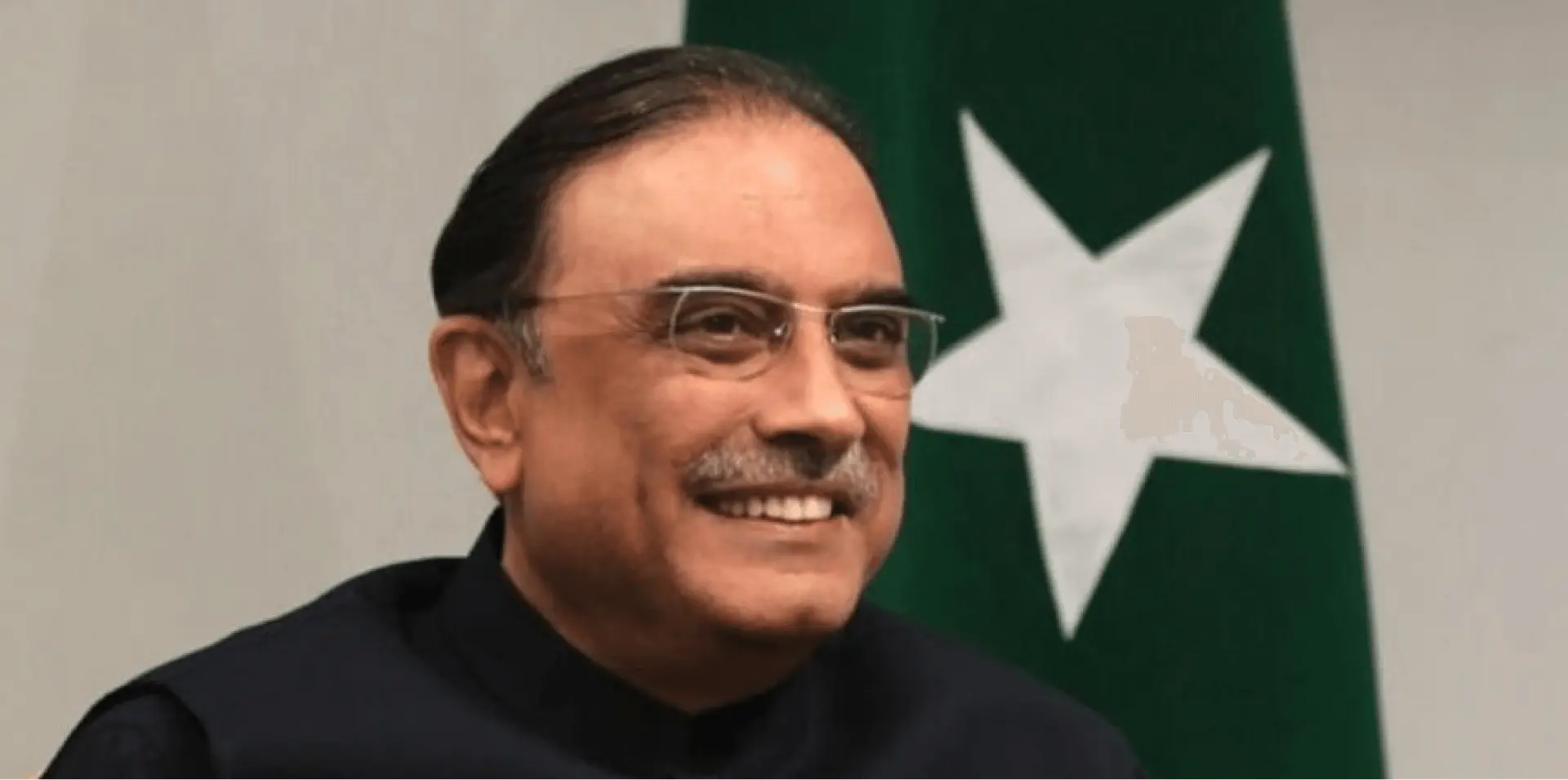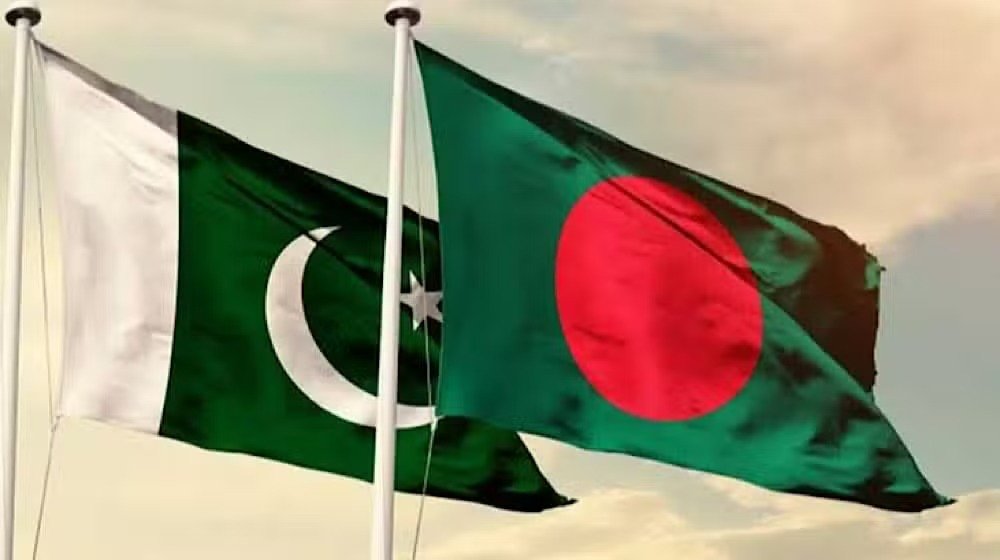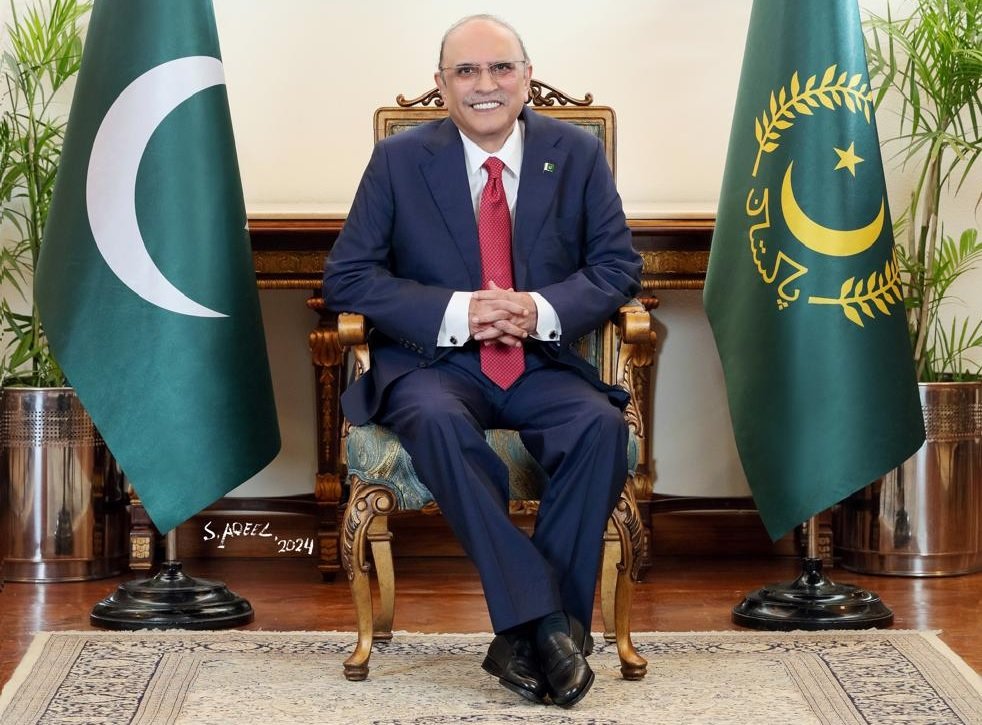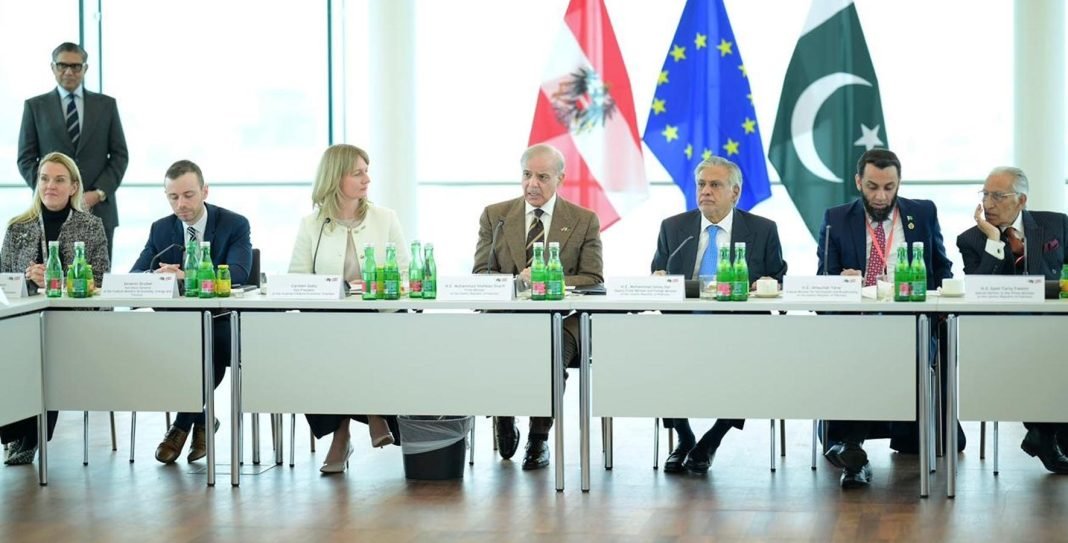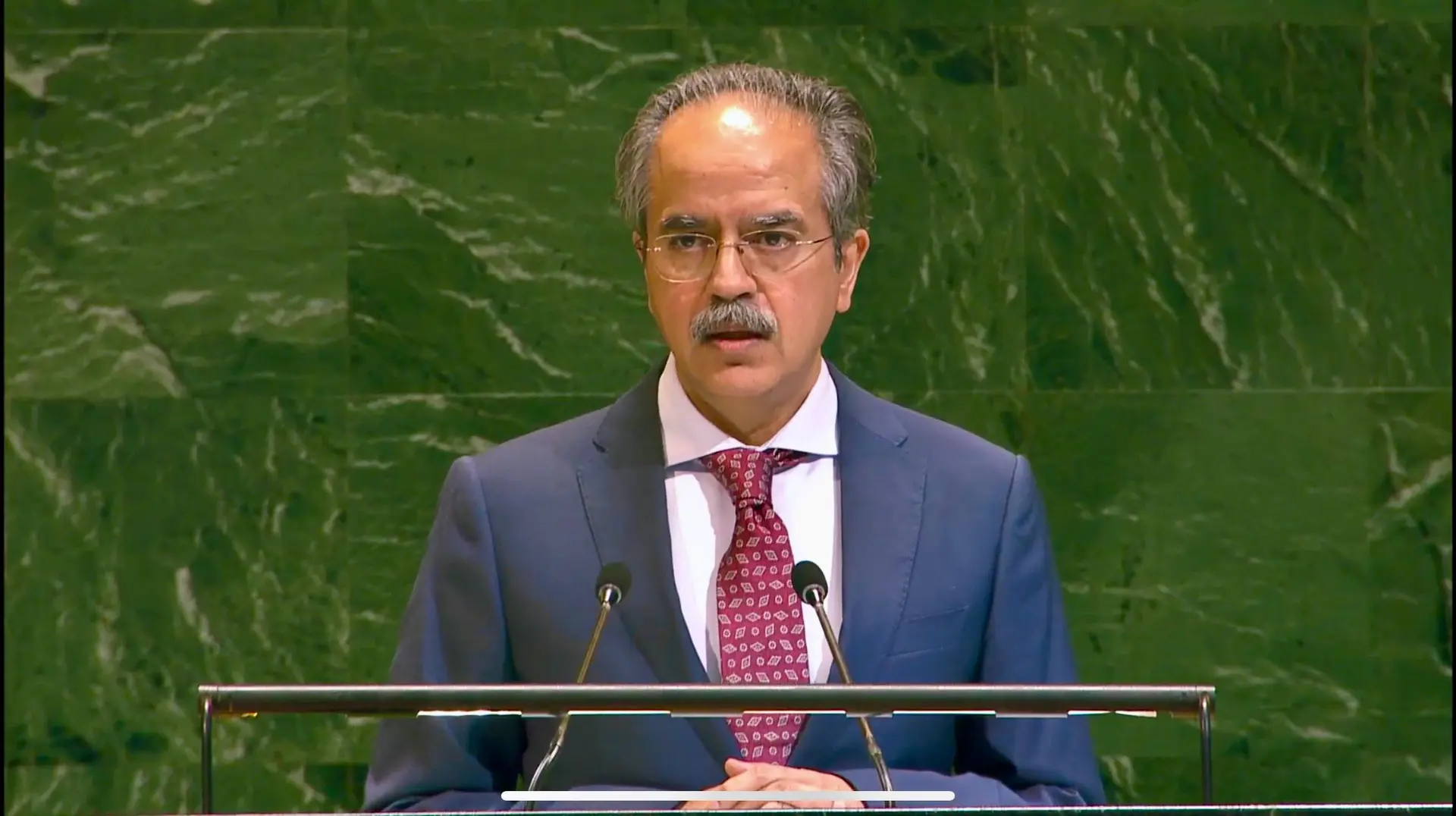Tashkent, February 26, 2025 – The Europe Today: In a meeting with media representatives, President of the Republic of Uzbekistan, Shavkat Mirziyoyev, and Prime Minister of the Islamic Republic of Pakistan, Shehbaz Sharif, shared their assessments of the recently concluded high-level negotiations, emphasizing their productive outcomes and the strengthening of bilateral ties.
President Mirziyoyev highlighted that this historic visit marks a new chapter in the strategic partnership between Uzbekistan and Pakistan. He commended the dynamic growth in bilateral cooperation in recent years, noting that trade turnover has exceeded $400 million, with the establishment of 130 joint enterprises and trade houses in Karachi and Tashkent. The resumption of flights between Tashkent and Lahore was also underscored as a significant step in enhancing connectivity.
The leaders acknowledged the effective operation of the Intergovernmental Commission and the success of political consultations, business forums, and Uzbekistan’s industrial exhibition in Pakistan. President Mirziyoyev remarked, “A substantial delegation of leading Pakistani companies visits our capital. Today, we will meet with businesspeople and discuss joint plans.”
During the negotiations, both parties identified new areas of cooperation and agreed to establish a Supreme Council of Strategic Partnership. The discussions focused on increasing trade volumes, diversifying mutual trade, strengthening industrial collaboration, and enhancing transport connectivity. The leaders also reaffirmed their commitment to supporting businesses by creating favorable conditions for investment and trade.
Special attention was given to advancing joint projects in pharmaceuticals, agriculture, agricultural machinery manufacturing, geology, mineral resources, textiles, and leather industries, with an emphasis on exporting finished products to third-country markets. Both sides also agreed to maintain close coordination within international and regional organizations such as the United Nations, the Organization of Islamic Cooperation, and the Shanghai Cooperation Organization.
The leaders reaffirmed their alignment on key geopolitical issues, including the peaceful development of Afghanistan and the diplomatic resolution of the Palestinian issue. Additionally, they expressed mutual interest in enhancing cooperation in security, counterterrorism, and combating transnational threats such as illicit drug trafficking and organized crime.
Cultural, humanitarian, and tourism exchanges were also key topics of discussion. Agreements were reached on organizing cultural and arts festivals and increasing tourist flows under initiatives like the “Umrah Plus” program.
In conclusion, it was emphasized that to ensure the timely and effective implementation of agreements and signed documents, both governments will adopt a comprehensive roadmap. The leaders reiterated their commitment to maintaining close bilateral engagement and fostering a long-term strategic partnership.
